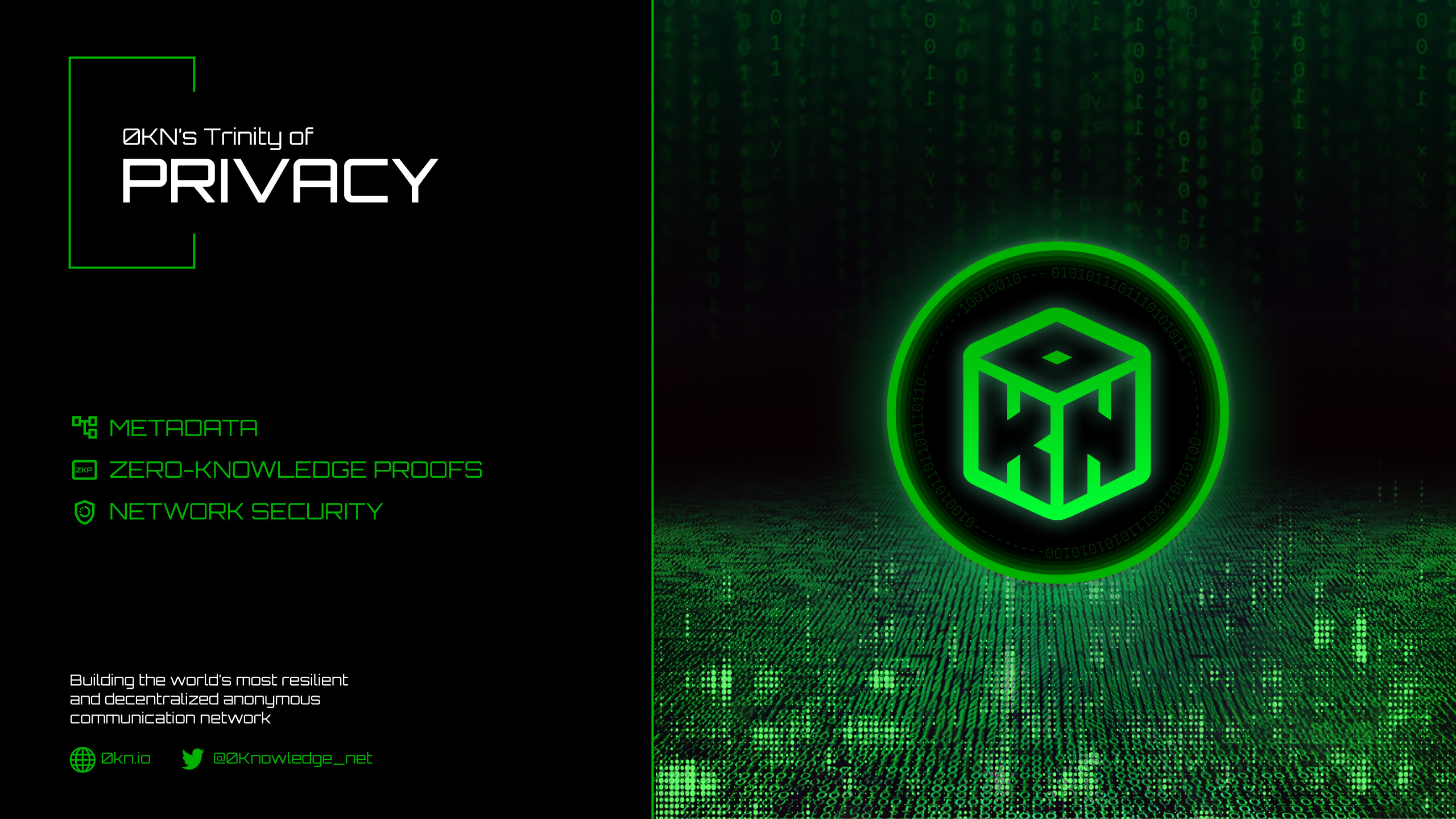0KN's Trinity of Privacy: Metadata, Hardware, and Zero-Knowledge Proofs

In an era where digital footprints are increasingly scrutinized, the need for robust privacy measures has never been more critical. The concept of metadata privacy emerges as a pivotal concern, especially in the context of blockchain technologies where the inherent transparency of transactions, while fostering trust and accountability, simultaneously exposes a wealth of information through transactional metadata. Metadata, the data that describes and gives information about other data, can inadvertently reveal sensitive information about the transactions, communications, or interactions it accompanies. This concern leads us to explore the importance of metadata privacy in blockchain transactions, enhancing content privacy with Zero-Knowledge Proofs (ZKPs), and securing physical networks with custom hardware within a decentralized framework like the 0 Knowledge Network (0KN).
A Metadata-Private Foundational Layer
Imagine sending a sealed letter where no one can read the content, but the envelope displays where you're sending it from, the destination, the time it was sent, and frequently the reason for sending it. This analogy highlights the essence of metadata privacy concerns. In the digital realm, while the content might be encrypted, the metadata can still disclose patterns, relationships, and sensitive information that could compromise privacy and security. In a broad and general application, 0KN provides a universal layer of metadata privacy as a Layer 0 for transactions on numerous blockchains, ensuring secure and confidential digital interactions within decentralized ecosystems.
Metadata-Privacy Meets Zero-Knowledge Proofs
As a custom-tuned application for 0KN's metadata private network, Zero-Knowledge Proofs (ZKPs) are employed to elevate privacy within 0KN's smart contract platform, securing not just the metadata but also the content of smart contract interactions. Through ZKPs, 0KN enables transactions and contracts to be validated without disclosing their details, ensuring only necessary information is revealed. The use of ZKPs not only protects sensitive data embedded in smart contract logic but also delivers cost-effective scalability with a gas-less system of proof verification. Ultimately, 0KN's strategic use of metadata-private ZKP transmissions marks a significant advance in blockchain privacy, offering users a platform where digital interactions remain secure, private, and verifiable.
The Hardware Angle: NØDE Devices
In addition to software solutions, 0KN also emphasizes the importance of hardware in enhancing privacy and security. NØDE devices, as part of the 0KN hardware line-up, serve as physical gateways and private layers within the 0KN network, offering hardware-level cryptography and physical tamper resistance, thereby securing the space between users and the network. These devices not only contribute to the decentralized architecture of the network but also incentivize participation through a reward system, promoting a healthy and privacy-focused secure ecosystem.
Why 0KN's Approach Is Revolutionary
In conclusion, the 0 Knowledge Network introduces an innovative triad of solutions to the pressing issue of privacy in the digital age, combining post-quantum metadata privacy, Zero-Knowledge Proofs, and secure hardware to create a comprehensive decentralized privacy ecosystem. By safeguarding both the content and metadata of transactions, 0KN addresses the vulnerabilities inherent in the transparent nature of blockchain technology, ensuring that sensitive information remains confidential. Additionally, the integration of NØDE devices reinforces the network's security from a physical standpoint, providing a fortified layer of privacy that protects against both digital and physical threats. Through this holistic approach to privacy, 0KN stands at the forefront of blockchain innovation, ensuring that users can engage in secure, private, and verifiable digital transactions, free from the concerns of metadata analysis and exposure in an increasingly interconnected world.
